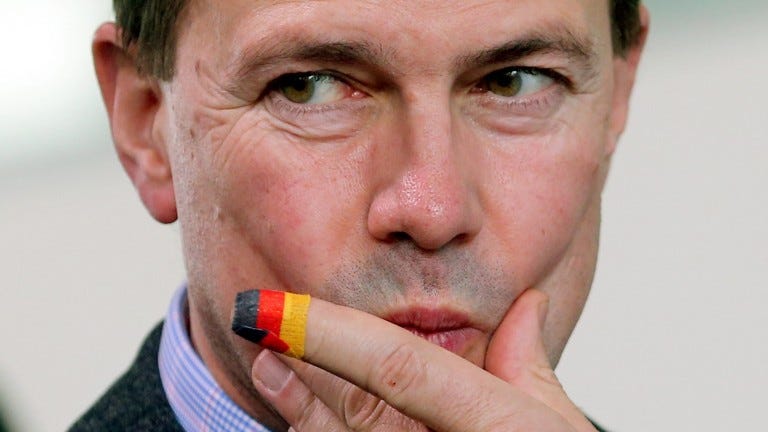Night Thoughts
Lies, Germany, and Censorship
On 28 Sept. 2021, Russia Today’s German subsidiary, RT Deutsch, reported that Youtube had banned their account due to ‘serious and repeated’ offences. Citing ‘medical misinformation’, a Youtube spokesperson confirmed the ban. As of five days ago, RT Deutsch’s channel with 614,000 subscribers and 547m views is no longer available.
In their above-mentioned report, RT Deutsch posted an interesting statistic from Youtube, which provides a clue as to why this happened: in August 2021, RT Deutsch’s channel had 19.6m views, which earned it the 5th place in German-language news media on Youtube, ahead of public broadcaster ZDF (18.2m views) and only a bit behind SpiegelTV (21.1m views); the most popular news channel in Germany, run by Welt, generated 49.4m views.
Now, why should you care?
RT Deutsch’s rapid growth on Youtube and Twitter within the German media universe had been noted by its main competitors, be it Politico (which belongs to the Springer Group) or the venerable Neue Zürcher Zeitung, Switzerland’s equivalent to the NYT.
In a reaction, RT’s editor-in-chief, Margarita Simonyan, branded the ban a ‘declaration of media war against Russia by Germany’. RT also said that they would appeal Youtube’s decision.
Of course, the German government’s spokesperson, Mr. Steffen Seibert (for the picture, see here), was asked about this on 29 Sept. 2021. Without irony (I suppose), he stated, according to Welt,
Meanwhile, government spokesman Steffen Seibert rejected the accusations from Moscow. ‘This is a decision by Youtube’, he said in Berlin on Wednesday [29 Sept. 2021]. Anyone who claims otherwise ‘is making up a conspiracy theory’.
This development was also commented on by the redoubtable Ms. Maria Zakharova, spokeswoman for the Russian Foreign Ministry, in a Telegram post. Referring to RT Deutsch’s problems with its former bank, Commerzbank (which ceased offering their services by 31 May 2021) and a 2019 decision by Germany’s media regulatory authority to withdraw the license for MEGA Radio (‘as the channel is highly financially dependent on the Russian state media company Rossiya Segodnya’), Zakharova called on Berlin to show
that you have no bad intentions towards RT DE and to prove a ‘good relationship with press freedom’, simply grant them a broadcasting permit, as was the case with a number of other foreign broadcasters.
Now, would you have guessed that the German government is the single largest shareholder (c. 15%) of Commerzbank? If not, well, it makes the bank’s move all the more suspicious.
In a reaction, Russian media regulator Roskomnadsor reacted to this sorry affair and noted the following:
In the event that the owner of the platform [Youtube] does not comply with the warning, the legislation allows us to take action, including blocking access to all or part of the platform.
According to Russian diplomats, ‘YouTube LLC acted with “apparent acquiescence, if not at the urging’ of the German authorities.
This means—nothing less than the possible end of Youtube and its perhaps also its parent company, Google, in Russia. This may also affect the Moscow-based operations of German state media giants ARD and ZDF, as well as Deutsche Welle in Russia.
We’re apparently well on the way towards a ‘balkanization’ of the Internet. Let’s just hope that worse outcomes will be avoided despite these political struggles.


